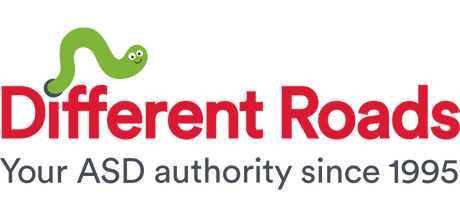During the first few weeks of school in a typical school year, kids are coming home from school exhausted and just letting it all go at home. Adjusting to school routines, schedules and demands is a LOT for kids making them both physically and emotionally worn out by the end of the school day.
But what about all those kids who are doing virtual school this year? Are they still going to have after school restraint collapse? They aren’t physically going to school….
Yes! Those of us who are several weeks in to virtual schooling can tell you- it is still very much a real thing.
Our kids are adjusting to even newer routines and schedules and technology. They are learning new skills, new ideas, new content. They are finding new ways to connect with their teachers and classmates remotely. They are learning not to throw their school devices out the window (even though many parents are struggling with this urge!). Our kids are working HARD during school time and when it’s not school time at home, all bets are off. They are tired and all the emotions are going to come out.
Some ways after school restraint collapse has shown up for virtual learners:
Problem behaviors pop up and may have you concerned. What should we do about this arguing? What should we do about our child being disrespectful?
We should support them and help them express their emotions. We should make sure they are getting movement outlets throughout the day and plenty of exercise when school is just sitting at a computer. We should remain cool, calm, and collected even when these new problem behaviors are really making us crazy.
We should help our child come up with a list of ways to decompress after a long school day at home. Help them take the lead in thinking of things they can do to unwind after a tiring day. Try to include as much outdoor fresh air time and movement or exercise in that as possible.
We should teach them about mindfulness and give them an easy grounding activity like this one.
Name 5 things you see.
4 things you can touch/ feel.
3 things you hear.
2 things you can smell.
1 thing you can taste
After school restraint collapse is still a very real thing, even when our kids aren’t going TO school. And when parents are already exhausted from facilitating distance learning all day, we are not at 100% to handle a sudden rise in problem behaviors. So what do we do? We pause and remember that our kids are giving us a hard time, they are having a hard time.
This is hard. Help them adjust by supporting them through after school restraint collapse and helping them find ways to unwind and express their emotions.
And while you’re at it- don’t forget to find ways to unwind yourself. It’s a difficult adjustment for parents, too! We can use all the mindfulness practice we can get these days!
Leanne Page, MEd, BCBA, is the author of Parenting with Science: Behavior Analysis Saves Mom’s Sanity. As a Behavior Analyst and a mom of two little girls, she wanted to share behavior analysis with a population who could really use it- parents!
Leanne’s writing can be found in Parenting with Science and Parenting with ABA as well as a few other sites. She is a monthly contributor to bSci21.com, guest host for the Dr. Kim Live show, and has contributed to other websites as well.
Leanne has worked with children with disabilities for over 10 years. She earned both her Bachelor’s and Master’s degrees from Texas A&M University. She also completed ABA coursework through the University of North Texas before earning her BCBA certification in 2011. Leanne has worked as a special educator of both elementary and high school self-contained, inclusion, general education, and resource settings.
Leanne also has managed a center providing ABA services to children in 1:1 and small group settings. She has extensive experience in school and teacher training, therapist training, parent training, and providing direct services to children and families in a center-based or in-home therapy setting.
Leanne is now located in Dallas, Texas and is available for: distance BCBA and BCaBA supervision, parent training, speaking opportunities, and consultation. She can be reached via Facebook or at Lpagebcba@gmail.com.
